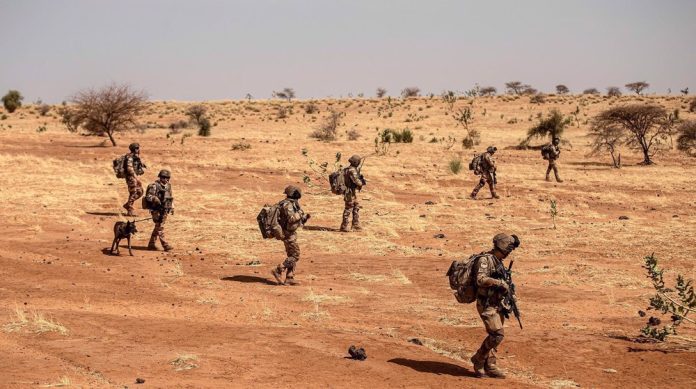Two people who claim to have been detained and subjected to torture at one of the company’s gas plants in Yemen have filed a new lawsuit against the French energy giant Total.
The attorneys for the two Yemeni men claimed in the lawsuit that their clients had been imprisoned and tortured by Emirati forces at the company’s gas plant in Balhaf, Yemen, according to reports in the media on Thursday.
ALSO READ: Saudi air strike on Yemen killed 3 children and others injured
The lawsuit demanded that Total accept responsibility for failing to recognize and stop these men’s rights violations at the location managed by a Total subsidiary.
In the lawsuit they filed on Wednesday at the Paris Court of Justice, the attorneys claimed that Yemen LNG, the company running the Balhaf gas liquefaction plant in the southern governorate of Shabwah, where the men were imprisoned in 2018 and 2019, is majority-owned by the French energy giant.
A 2017 French law requiring major French corporations to publish an annual plan to establish and mitigate the impacts on human rights and the environment of their project work or that of their subsidiaries was cited by the lawyers as the reason why Total Company had failed to identify and prevent human rights violations.
The men’s legal representative, Alexis Thiry, of the Geneva-based MENA Rights Group, said that Total “must take responsibility for the violations committed by UAE forces in Balhaf.”
Thiry criticized Total for excluding the Yemeni plant from its vigilance plan, despite being repeatedly informed of egregious human rights violations there. “.
As a result of the Saudis’ start of the war in Yemen, gas production at the Balhaf plant was halted in the interim in early 2015.
The Saudi-led coalition forces—in this case, Emirati forces—requisitioned some of the French company’s facilities in March 2017.
Right-wing organizations keeping tabs on the conflict and journalists have documented persistent violations of human rights there. The plant was part of a larger network of jails and detention facilities used by the Saudi-led forces in southern Yemen, where abuses of human rights were occurring, according to the UN in 2019.
In 2019, Total asserted on its website that it “does not intervene directly” in what takes place at its facilities.
At the time, Total stated that it was unaware of any specific information regarding the coalition’s use of the requisitioned areas.
Since then, formal notices detailing the violations of human rights that had occurred at the sites have been sent to the company by the Geneva-based legal advocacy NGO MENA Rights Group. The French company allegedly responded that it was exempt from the due diligence obligations at the seized plant because, despite being Yemen LNG’s largest shareholder, it has no control over the company.
This is the second time that Total has been sued under the law requiring due diligence in response to allegations of violations of human rights.
A lawsuit against Total was previously filed in 2019 by six civil society organizations, who charged the company with disregarding the risks an oil project in Uganda posed to the environment and the human rights of the local population. In this regard, Total has denied the allegations. However, the legal dispute is still pending in court.
Meanwhile, Louis Cofflard, one of the attorneys defending the two Yemeni men in the Balhaf case, claimed that the most recent lawsuit filed against Total “clearly illustrates the multinational’s strategy of disclaiming legal responsibility when serious human rights violations are revealed and connected to the operations or infrastructure of its subsidiaries.
Together with its Arab allies and with the assistance of the United States and other Western nations, Riyadh began its destructive war against Yemen in March 2015.
The goal of Riyadh was to reinstall Abd Rabbuh Mansur Hadi, a former president of Yemen and a close ally of Saudi Arabia, and to put an end to the well-liked Ansarullah resistance movement. The Saudi-led forces have so far failed to accomplish any of the goals.













